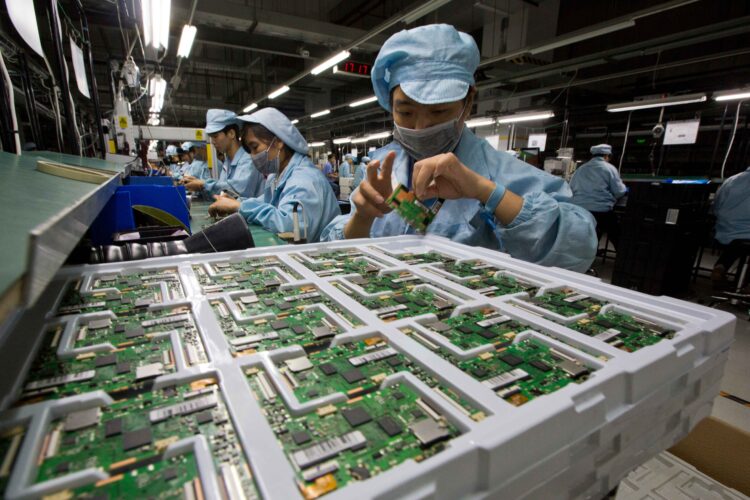The Biden administration has imposed new restrictions on China’s ability to buy artificial intelligence (AI) chips, leading to outcry from the Chinese government.
On Tuesday, the U.S. Department of Commerce said it was adding significant restrictions on the exporting of artificial intelligence chips and other advanced semiconductors to make it harder for American companies Nvidia and Intel to sell to China. The new law also made it harder to introduce new chips and get around the restrictions by closing loopholes in export controls from last year.
Commerce Secretary Gina Raimondo said the goal is to block China’s “access to advanced semiconductors that could fuel breakthroughs in artificial intelligence and sophisticated computers.” She emphasized that the restrictions were not designed to cripple China economically but rather to prevent use of the chips by the country’s military.
WATCH: The Biden administration plans to halt shipments to China of more advanced AI chips designed by Nvidia and others, part of a suite of measures aimed at stopping Beijing from getting cutting-edge US technologies to strengthen its military https://t.co/TxU2wPdUB8 pic.twitter.com/sMLa0m5ap7
— Reuters Business (@ReutersBiz) October 18, 2023
Learn the benefits of becoming a Valuetainment Member and subscribe today!
The law expands the American government’s authority to ban imports and exports on the grounds of National Security concerns. The government must now be notified about the selling of less advanced so-called “gray zone” chips as well, and the law gives the government the ability to deny them the right to sell at whim.
After the news broke, Nvidia shares dropped by about 5 percent and performed second to worst on the S&P 500 for the day. Advanced Micro Devices (AMD) and Intel declined by about 1 percent each.
China was outraged at the news, criticizing them as “improper” and saying that it will thwart technological progress. The new law “violate[s] international trade rules and “seriously threaten[s] the stability of industrial supply chains,” the Chinese Commerce Ministry reportedly said.
(RELATED: China vs Taiwan – What Will Happen if China Invades?)
“U.S. semiconductor companies have suffered huge losses and semiconductor companies in other countries have also been affected,” it said. It added that the Chinese government would take “all necessary measures” to safeguard its rights and interests.
As covered in a recent Valuetainment video, Patrick Bet-David explained how China is heavily dependent on the rest of the world for advanced microchips. Its perceived competitive advantage in domestic manufacturing is not applicable here, as its chip production is mostly limited to cheaper products.


















Add comment